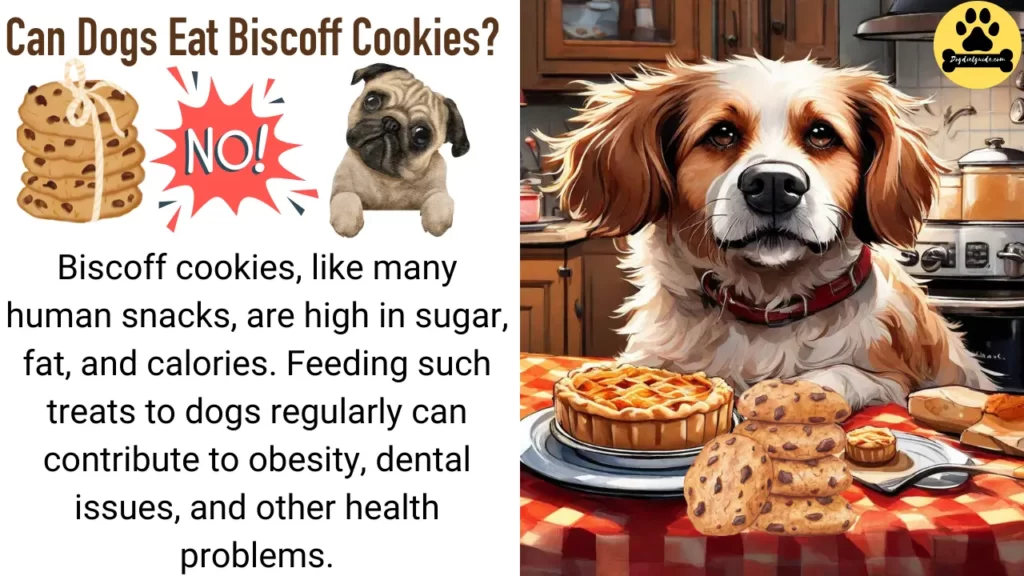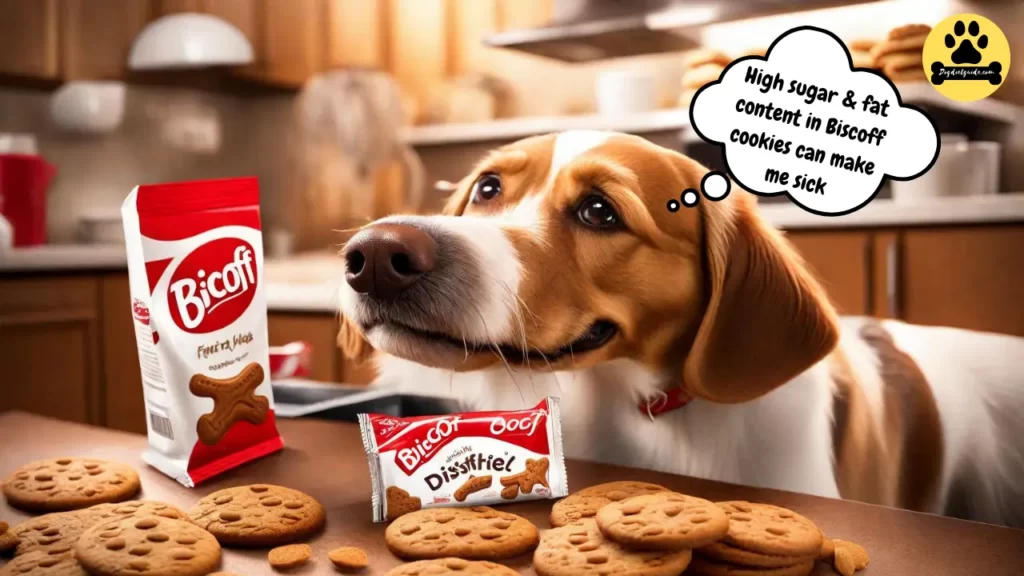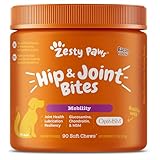In a world where pet owners are increasingly conscious of the foods they share with their furry companions, the question of what’s safe for our beloved dogs to consume becomes paramount. Amidst the myriad of human treats that tempt our taste buds, the curiosity arises: Can dogs eat Biscoff cookies?
As canine enthusiasts, it’s only natural to want to share our favorite snacks with our four-legged friends. However, the intersection of canine nutrition and human indulgences requires careful consideration.
Excessive consumption of Biscoff cookies can harm dogs.
Sugar and fats, prominent components in Biscoff cookies, can harm dogs when consumed excessively and can lead your furry friend to weight gain, dental issues and diabetes. As responsible pet owners, we must monitor and limit our dogs’ intake of sugary treats.
Biscoff Cookies Ingredients
Biscoff cookies typically include flour, sugar, vegetable oils, leavening agents, soy flour, salt, cinnamon, and brown sugar. While some of these ingredients are safe for dogs in moderation, others may pose potential risks.
Can Dogs Eat Biscoff Cookies?
No. Biscoff cookies, like many human snacks, are high in sugar, fat, and calories. Feeding such treats to dogs regularly can contribute to obesity, dental issues, and other health problems.
Consuming Biscoff may not be well-tolerated by all dogs and could lead to gastrointestinal upset. It’s advisable to choose treats specifically designed for dogs and refrain from sharing human food with your pets unless you are sure it is safe for them.

Are Biscoof Cookies Toxic To Dogs?
Biscoff cookies are not inherently toxic to dogs but are not recommended as a treat for them. These cookies typically contain ingredients like sugar, fats, and spices that may not be suitable for a dog’s digestive system.
While a small amount may not cause immediate harm, regularly feeding Biscoff cookies to canines can lead to health issues such as obesity, gastrointestinal upset, and potential pancreatitis.

Can Dogs Eat Biscoff Cookie Butter?
Biscoff cookie butter is generally not recommended for dogs due to the potential for digestive upset, weight gain, and the risk of certain harmful ingredients, such as added sugars and artificial sweeteners, in cookie butter.
Biscoff Health Risks For Dogs
-
High in sugar contribute to obesity in dogs and may also lead to dental problems.
-
These cookies often contain a significant amount of fats, which can be challenging for dogs to digest and may contribute to pancreatitis, a condition that involves inflammation of the pancreas.
-
Due to their caloric density, feeding regularly can contribute to weight gain, which is a common risk factor for various health issues in puppies.
-
The combination of sugar, fats, and potential allergens in Biscoff cookies can cause digestive upset, including vomiting and diarrhea.

Related Post: Can Dogs Eat Fruit Snacks?
What Should I Do if My Dog Eats Biscoff Cookies?
If your dog has ingested Biscoff cookies, it’s essential to monitor their behavior for signs of distress such as vomiting, diarrhea, lethargy, or changes in appetite. While Biscoff cookies are generally not toxic, their high sugar and fat content may pose health risks, especially if consumed in large quantities.
Contact your veterinarian for advice, especially if your dog is diabetic, as monitoring blood sugar levels may be necessary.
Safe Alternatives
- Plain, unsalted peanut butter: Ensure it does not contain xylitol, a sweetener toxic to dogs. You can spread a small amount on a dog-safe toy or use it as a treat.
- Carrot sticks or baby carrots: Most pups enjoy the crunchiness of carrots, and they are a healthy, low-calorie option.
- Blueberries: These are a tasty and nutritious treat for many canines, providing antioxidants and vitamins.
- Apple slices: Remove the seeds and core and offer your furry friend apple slices as a crunchy and sweet treat.
- Banana slices: Moderation is key due to the sugar content, but bananas can be a tasty and safe option.
- Plain, air-popped popcorn: Without butter, salt, or other additives, plain popcorn can be a low-calorie treat for dogs.
- Plain cooked chicken or turkey: Offer small, bite-sized pieces of cooked, unseasoned meat as a protein-rich treat.
- Pumpkin puree: Make sure it is plain pumpkin without added sugar or spices. It can be served in small amounts as a treat.
Related Post: Are Gushers Safe For Dogs?
Final Thoughts: Biscoff cookies For Dogs
In conclusion, while Biscoff cookies may contain generally safe ingredients for dogs, their high sugar and fat content make them less than ideal as a treat for your pup. Excessive consumption of Biscoff cookies can lead your dog to health complications.
Understanding the potential risks associated with specific ingredients allows us to make informed choices about what we share with our beloved pets. Consulting with a veterinarian for personalized advice on your pet’s diet is recommended to ensure their overall well-being and health.










![Can Dogs Eat Blood? 7 Side Effects [Expert Opinion]](https://petskor.com/wp-content/uploads/2022/04/Webp.net-resizeimage-12.jpg)
